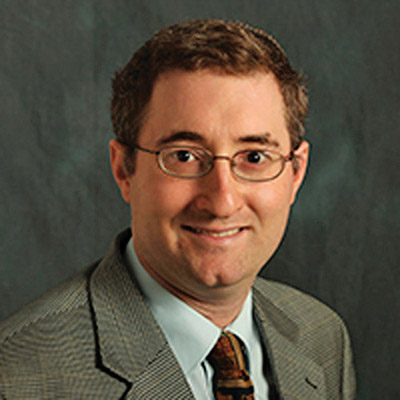


Community members joined the senior class at Ma’ayanot on Monday morning, December 25, for its “Day of Big Ideas.” Held annually for the past nine years, the purpose of the day is to promote the learning of Torah alongside the liberal arts under the tutelage of members of the Ma’ayanot faculty. Reacting to the popularity of Ma’ayanot’s yearly yom iyun, held on the Sunday between Rosh Hashanah and Yom Kippur for the past 15 years, assistant principal Tamar Appel innovated the Day of Big Ideas, initially called the Day of Study in Liberal Arts and Sciences.
This year’s keynote address was delivered by Dr. Shalom Holtz, associate professor of Bible at Yeshiva University and director of the Jay and Jeanie Schottenstein Honors Program at Yeshiva University. Dr. Holtz maintains a close connection to Ma’ayanot through his wife Leebie Mallin’s role as a guidance counselor at the school.
Introduced by Appel as a recognized Torah scholar as well as a friend from their days as graduate students at the University of Pennsylvania, Dr. Holtz’s presentation was titled “The Tenth of Tevet and the Second of Adar: Hurban Bayit Rishon as a National and International Event.” Through written sources and slides, Dr. Holtz illustrated how we should be relating to events in Jewish history in light of recent discoveries and insights. “As the Haggadah teaches us, in every generation we are obligated to see ourselves as if we were freed from Mitzrayim. So, too, we must view all events in Jewish history as if we were participants in them. When we take off our shoes in mourning on Tisha b’Av we must step into the shoes of those who lived through the churban.”
Over the past 150 years, documents and clay tablets have surfaced to introduce new significant dates in Jewish history that have not been formally recognized as yearly commemorations. Through such discoveries, Dr. Holtz was able to illustrate how March 6, 597 BCE, corresponding to the Second of Adar, was a critical moment in our history as it coincided with the exile of the skilled craftsmen of Israel to Babylonia during the short reign of Yehoyachin, the next to last king of Judah. Through Acadian documents we were able to learn that this significant date pre-dated our official marking of the breach of Yerushalayim on the 10th of Tevet by 10 years.
Following the keynote address, the morning offered a choice of six additional presentations over two sessions. Appel discussed “The Question of Jewish Citizenship in Revolutionary France” through exploration of two crucial documents of the period that debated the pros and cons of granting citizenship to the Jews in France. Interesting attitudes toward the Jews in the 18th and 19th centuries were revealed.
Enid Goldberg, English instructor, led a lively discussion of John Keats’ famous “Ode on a Grecian Urn” and how it encapsulates an entire life’s view in a few lines. She provided the historical background of the poem as well as biographical information about the poet who passed away tragically at the age of 25.
Gila Stein, science department chair as well as co-director of STEAM Education and Innovation, titled her presentation “Science in Your Kitchen: The Chemistry of Food and Cooking.” Among many informative ideas, she revealed that the reason our roasted meats taste so good is because of the Maillard reaction, a chemical reaction between proteins and sugars that results in the browning of the meat.
Rabbi Donny Besser, director of Torah enhancement and instructor of Talmud and Halacha, utilized the lyrics from the Broadway musical “Hamilton” to discuss the temptations of biblical figures Yosef and Yehuda and the reasons behind their different reactions and behaviors. Rabbi Besser’s message was that mussar can be gleaned from many unusual sources.
Dr. Oshra Cohen, guidance counselor at Ma’ayanot, titled her presentation “The Science of Mindfulness: It’s More Than Just Yoga.” She began with a discussion of what constitutes “mindlessness,” such as assumptions made from previous experiences and overlearning so that we are not building new pathways in the brain. In contrast, Dr. Cohen described mindfulness as a state of awareness of the present, an openness to new experiences. Our reciting brachot prior to eating and praying with kavana are examples of religious practices that promote mindfulness.
Chani Rotenberg, history chair and co-director of interdisciplinary programming, discussed “Roots of the Women’s Movement During Abolition and the Civil Rights Era.” She demonstrated that the women in these movements acquired self-confidence in organizational skills and public speaking. Also, in the course of their activism on behalf of others, they became advocates on behalf of their own rights.
For information about ongoing classes for the community offered by Ma’ayanot faculty, contact Pam Ennis at [email protected].
By Pearl Markovitz










